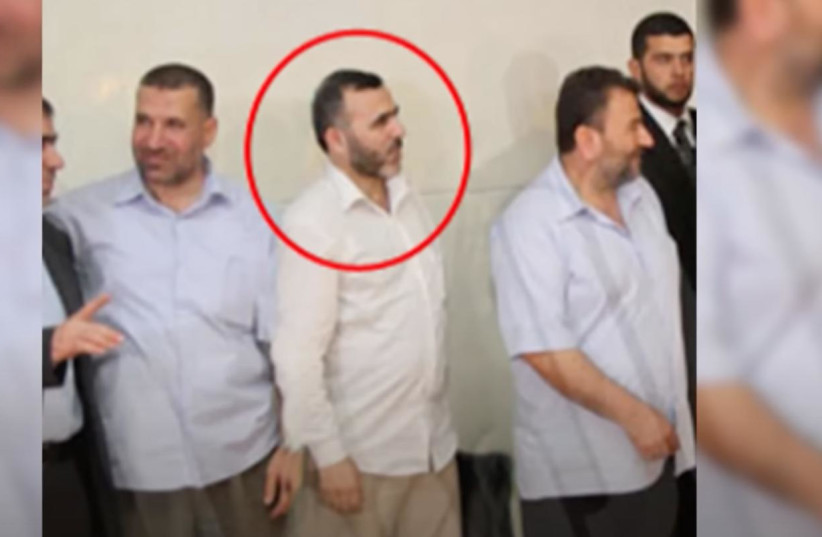Last week, there was strong support in Israel for the idea that Hamas’s third in command, Marwan Issa, was killed by the IDF last Saturday on March 9. Yesterday, KAN News cited an anonymous Hamas report that indicated the same. And yet, multiple defense sources have said that whether or not he is living remains an open question.
On Sunday, KAN cited anonymous Palestinian sources saying that privately, Hamas was ready to acknowledge that Issa, the deputy of Hamas military chief Mohammed Deif, did not survive the Israeli strike.
Two days after the strike, multiple defense sources, Prime Minister Benjamin Netanyahu, and Defense Minister Yoav Gallant all hinted that he was killed in Nuseirat in central Gaza, hidden in a tunnel.
The anonymous Palestinian sources added that his body was still buried underneath the rubble.
Why is the IDF chief refusing to confirm Issa's death?
However, by Sunday night, IDF Chief of Staff Lt.-Gen. Herzi Halevi had explicitly refused to confirm his death.
He did say that the operation to attack Issa, whether it killed or injured him, was a significant intelligence coup because it led to a precise hit on the high-ranking Hamas military leader in an underground tunnel.

In reality, when Halevi suggests that Hamas is working hard to conceal Issa’s fate under the large amount of rubble, he seems to imply that the issue about knowing his fate involves the rare circumstance that he was hit while underground.
Still, it was unclear if the IDF and other defense sources were refusing to confirm his death until his body was unearthed as a technicality, or because they had evidence of a ruse to cover up his survival.
Gallant on Sunday said that the military uses ongoing field intelligence information that led to locating Issa. He added that this same intelligence would make a future operation in Rafah successful.
The IDF said no hostages were injured in the operation against Issa, despite regular indications that Hamas’s high command surround themselves with them as human shields.
Some suggested that Issa did not have hostages nearby and that the lack of clarity had to do with nearby tunnels, while others surmised that Israel may have succeeded in attacking him at a moment when he moved away from the hostages, perhaps even slightly above ground.
Generally, there seemed to already be some increased confidence in Israel by last Monday afternoon, when a video posted by Netanyahu alluded to the IDF operation.
“We are on our way to complete victory,” he said. “We have already killed number four in the Hamas; three, two, and one are on the way. We will reach everyone.”
The number four to whom Netanyahu alluded was Hamas’s deputy chief outside of Gaza, Saleh al-Arouri, who was killed in a drone strike in Lebanon in January.
Although Netanyahu did not name al-Arouri, his video was the first and most direct confirmation to date of Israel’s involvement, though many Israeli officials have dropped hints in the past.
One thing that was unclear from Netanyahu’s video was how exactly he was calculating Hamas’s top seven or so leaders.
Technically, Ismail Haniyeh is Hamas’s top official, and even if one placed Gaza Chief Yahya Sinwar as #1, Deif as #2, and Issa as #3, it would not make sense to put al-Arouri above Haniyeh, given that he was Haniyeh’s deputy.
In addition, some view former Hamas leader Khaled Mashaal and Sinwar’s brother, Muhammad Sinwar, as potentially higher than al-Arouri.
A spokesman for Netanyahu did not clarify the issue, and it is possible that the one-through-four listing was not 100% accurate as much as it was trying to demonstrate that Israel may now have gotten two of Hamas’s high command and could be close to getting more.
Other than al-Arouri and Issa, the two highest Hamas officials killed previously were from its five brigade commanders, Ayman Nofel and Ahmad Randur, but both were below the high-command level.
Issa has represented the Hamas military brigades in its political bureau. Designated by the US State Department as a terrorist for his 2019 role in Hamas, he was one of the founding members of the terror group in 1987, at the beginning of the First Intifada.
Israel, as confirmed by Arab media, has accused Issa of participating in the planning of the October 7 massacre in Israel. On October 8, the European Union also added Issa and Deif to its list of designated terrorists.
